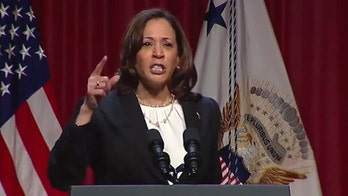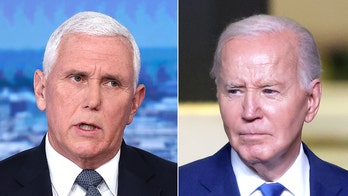Multiple liberal political commentators drew parallels between former President Trump's acceptance speech at the Republican National Convention and the long-winded speeches characteristic of late Cuban dictator Fidel Castro, highlighting the 'cult of personality' that surrounds both leaders.
Former President Trump's recent address at the Republican National Convention (RNC) has sparked comparisons to the famously long speeches delivered by late Cuban dictator Fidel Castro. Multiple liberal political commentators and reporters have highlighted the similarities in speaking style between the two leaders, noting the extended length, use of random anecdotes, and emphasis on personal narratives that have become characteristic of both individuals.
CNN's Paul Begala remarked that "somewhere in hell, Fidel Castro is jealous" of Trump's lengthy speech, which spanned over 92 minutes and exceeded midnight. MSNBC host Alex Wagner characterized the speech as "Castrolean in length," drawing parallels to the marathon speeches Castro was known to give. Wagner also made a connection to former Soviet Premier Nikita Khrushchev, another leader notorious for his long speeches, suggesting that these lengthy addresses are indicative of aging leaders who rely on a "cult of personality" to maintain their power.

Trump's RNC Address: 'Cult of Personality' Comparable to Fidel Castro's Long Speeches
MSNBC host Joy Reid compared the length of Trump's speech to Castro's longest address, a 7-hour and 10-minute speech delivered at the Communist Party conference in Havana in 1986. Reid noted that while Trump's speech fell short of Castro's record, the comparison highlights the tendency of both leaders to engage in lengthy monologues that may serve to reinforce their authority and cultivate a sense of personal loyalty among their followers.
Political commentators on social media also drew on Castro's historical reputation for long speeches to critique Trump's performance at the RNC. Rick Wilson, co-founder of the Lincoln Project, likened Trump's speech to Castro's rambling style, suggesting that both leaders rely on random anecdotes and crowd-pleasing remarks to maintain audience engagement.

Trump's RNC Address: 'Cult of Personality' Comparable to Fidel Castro's Long Speeches
Trump campaign communications director Steven Cheung dismissed the comparisons to Castro, calling them a product of "Trump Derangement Syndrome" or sheer stupidity. He defended the former president's speech as an inspiring address that resonated with the convention audience.
The comparisons between Trump and Castro underscore the concerns raised by some observers about the potential for a 'cult of personality' to develop around political leaders who cultivate a strong emotional connection with their followers. The lengthy, passionate speeches delivered by both Trump and Castro have been seen as a means to reinforce this connection, building a sense of loyalty and devotion that transcends policy differences or critical analysis.

Trump's RNC Address: 'Cult of Personality' Comparable to Fidel Castro's Long Speeches
While some supporters may view these speeches as a sign of authenticity and passion, detractors argue that they can be used to manipulate emotions, stifle dissent, and promote a narrative that centers around the individual leader rather than the collective interests of the people they represent. Castro's long speeches were often used to disseminate propaganda and consolidate his power, while Trump has faced accusations of using his speeches to sow division and undermine trust in institutions.
The parallels drawn between Trump and Castro, while not based on any direct connection or ideological alignment, serve as a reminder of the dangers inherent in allowing political leaders to command such an outsized presence in public discourse. The ability to deliver lengthy, emotional speeches that captivate audiences carries with it the potential to influence and persuade in ways that may not be conducive to a healthy and balanced political system.









